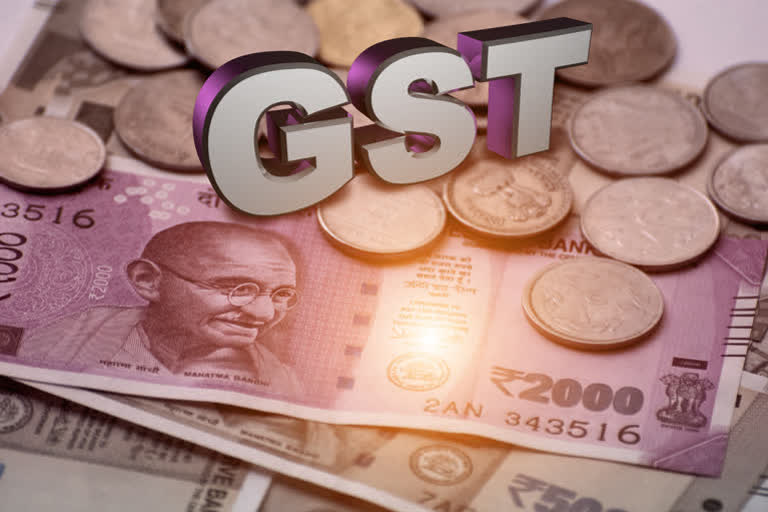New Delhi: As many as seven non-BJP ruled states, including Kerala and Punjab, besides Union Territory Puducherry on Monday rejected the Centre's suggestion of states borrowing to make up for the GST shortfall, saying the constitutional liability lies with the Union government.
At an informal meeting on Monday, six non-BJP ruled states -- Punjab, West Bengal, Kerala, Delhi, Chhattisgarh and Telangana -- felt that an alternative mechanism should be worked out to compensate the GST revenue shortfall.
Besides, Congress-ruled Rajasthan and Puducherry too said they will follow suit on the issue of compensation.
Punjab Finance Minister Manpreet Singh Badal outrightly rejected the Centre's proposal of borrowing by states to meet shortfall in GST revenue and dubbed it as a "clear breach of the solemn and constitutional assurance and betrayal of spirit of cooperative federalism".
In a letter to Union Finance Minister Nirmala Sitharaman on Monday, Badal asked her to reconsider the decision, which was taken at the last Goods and Services Tax Council (GSTC) meeting.
Badal sought another urgent meeting to seek "full clarity" on the issue and also demanded the constitution of a group of ministers to "deliberate on the matter and make recommendations in a time-bound period of 10 days".
"FMs of Punjab, Delhi, W Bengal, Chhattisgarh, Telengana and Kerala agreed to reject the Centre's options on GST compensation. Our option: Central Govt to borrow entire compensation due regardless of acts of gods, humans or nature, to be paid back by extending the period of Cess," Kerala Finance Minister Thomas Isaac said.
In a letter to Union Finance Minister Nirmala Sitharaman, Badal demanded full clarity on the options given by the Centre and sought an urgent meeting of the GST Council on the issue.
"Punjab is prepared to cooperate in a spirit of finding a solution to this vexed problem but is unable to persuade itself to either of the options presented at this stage," Badal said, adding that the method of calculating losses by the Centre is arbitrary, one-sided and devoid of any legal justification.
In a tweet, Isaac said the state has no choice other than to reject the options "lock, stock and barrel".
"Enough is enough. No more surrender of states rights. GST Compensation is our constitutional right," Isaac tweeted.
The Centre and Opposition-ruled states are at loggerheads over the financing of the Rs 2.35 lakh crore GST shortfall in the current fiscal. Of this, as per Centre's calculation, about Rs 97,000 crore is on account of GST implementation and rest Rs 1.38 lakh crore is the impact of COVID-19 on states' revenues.
The Centre last week gave two options to the states to borrow either from a special window facilitated by the Reserve Bank of India or from the market and has also proposed extending the compensation cess levied on luxury, demerit and sin goods beyond 2022.
Read more:Growth decline due to intense lockdown; V-shaped recovery in some sectors: CEA
"We all got it wrong regarding Centre's proposal on GST deadlock. This itself is sad commentary on proceedings of Council. We discuss for 5 hours and then the Chair comes up with proposals which are totally disconnected with discussions and no time left for any clarification," Isaac tweeted.
Chhattisgarh Chief Minister Bhupesh Baghel also wrote to Sitharaman saying the Centre should not pressurise states to take loans. The money to compensate them for the loss of tax revenues should be arranged by the central government.
"While the GST compensation was to be paid bi-monthly, state government has not received Rs 2,828 crore compensation for the four months of current 2020-21 fiscal," he wrote.
He said the constitutional obligation for making good any loss of revenues due to implementation of GST lies with the Centre.
"GST compensation cess is collected by the Centre and using that to pay for loan taken by state governments is a complex and uncertain process," he wrote. "The Centre should arrange for the compensation from its resources or loan."
Badal in his letter also suggested that the GST council should invite views on resolving the possible dispute under the mechanism provided in Article 279A(11) of the Constitution.
Article 279A(11) of the Constitution provides that the GST Council creates a mechanism to resolve dispute between the Centre and states, among others.
"We ... take both the options with great regret as a clear breach of the solemn and constitutional assurance by the Central Government. We believe this as betrayal of the spirit of cooperative federalism that formed the backbone of GST-journey so far," Badal said.
If projections are made till the end of compensation period, the total revenue loss may cross Rs 4,50,000 crore. This, together with interest, would require more than 4- 5 years to repay the borrowings rather than 2-3 years that is being believed, he added.
Many states feel that borrowings by the states may be costlier by up to 150 basis points when compared to the borrowing by the Centre, he said. "When resources for payment have to come from a tax that is levied by the authority of the Parliament it makes no sense for States to borrow. ...Any future dispute in relation to GST Compensation will have deleterious impact on the States creating situations of defaults by States."
Speaking to reporters in Hyderabad, TelanganaFinance Minister T Harish Raosaid: "Unfortunately the Centre is trying to shy away from paying ... GST compensation to states in the name of act of god and coronavirus. It is not fair on (the) Centre's part to tell states to borrow (for GST losses). It was loud and clear that as per the GST Act, the Centre will compensate if the states' tax revenues growth is less than 14 per cent".
(PTI Report)



